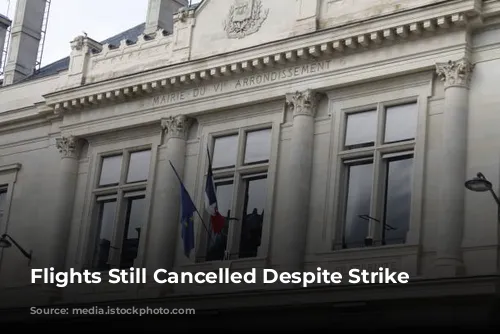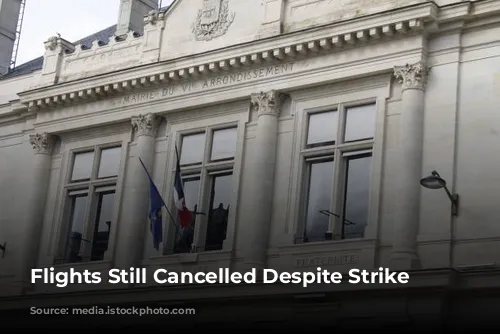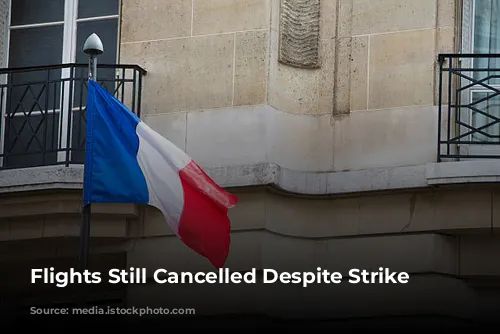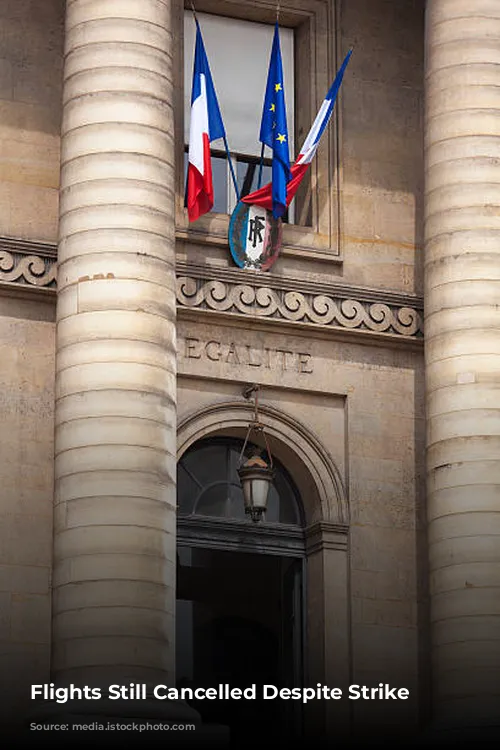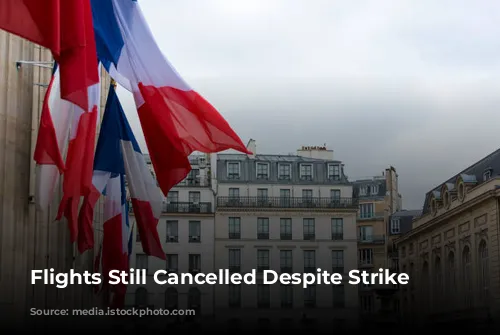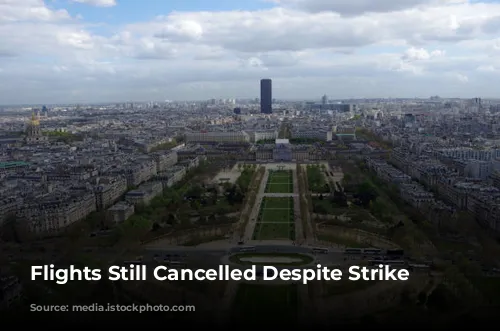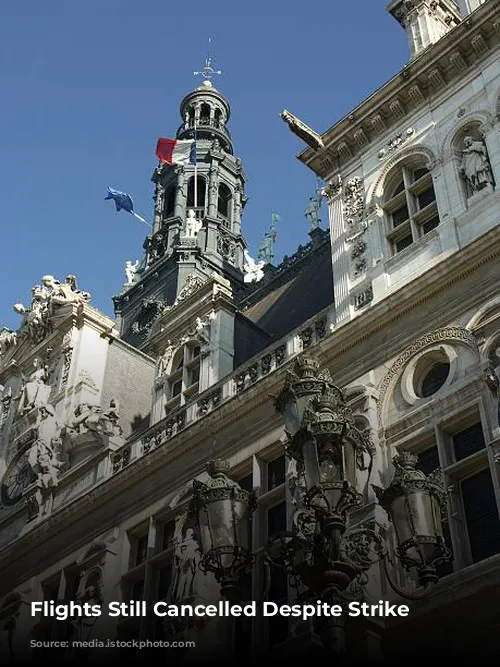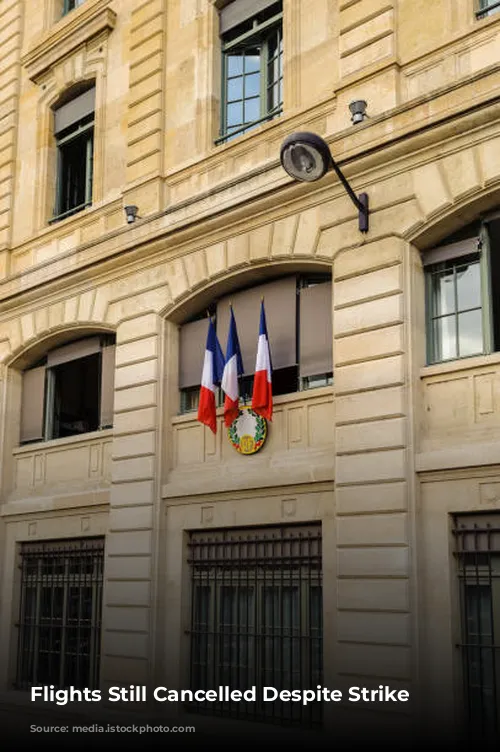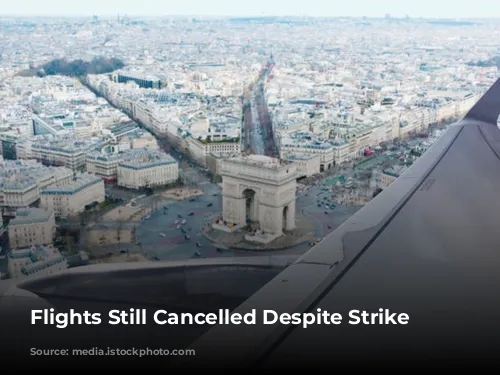While a planned strike by air traffic controllers in France has been cancelled, many flights remain grounded. This is because the agreement between the union and the government came too late to reverse previously scheduled cancellations.
The largest air traffic controllers’ union, SNCTA, had planned a 24-hour strike on Thursday to protest proposed changes to working conditions. However, after negotiating a deal regarding pay and working conditions, the union decided to call off the strike.
Unfortunately, the agreement was reached too late to prevent flight cancellations, which were already in place. As a result, a significant number of flights remain cancelled across various French airports.
Chaos at French Airports
Paris Orly Airport faces the most significant disruptions, with 75 percent of flights still cancelled. Paris Charles de Gaulle Airport in Roissy is also heavily impacted, with 55 percent of flights grounded. Other airports across mainland France are also experiencing significant cancellations, with Marseille-Provence at 65 percent and other airports at 45 percent.
The SNCTA union represents over 60 percent of France’s air traffic controllers and had predicted a “record turnout” for the strike. The national press referred to the 25th as a “journée noir” (black day) for French airports.
A spokesperson for the SNCTA union told AFP that travelers should expect significant disruptions and long delays.
Strike Threat Looms Despite Agreement
While the SNCTA has called off its strike, it’s unclear whether other unions involved, UNSA-INCA and Usac-Cgt, will still go ahead with their planned action.
The SNCTA’s strike threat came despite an agreed ‘Olympic truce’ aimed at suspending industrial action until the end of the games. The French government is facing pressure from unions demanding better pay and working conditions.
Ongoing Labor Disputes in France
The air traffic controllers’ strike is not an isolated incident. There are various labor disputes across France, including a seven-month strike notice from CGT-RATP union members, affecting the Ile-de-France bus and metro network. This strike, set to begin on February 5th, could disrupt transportation services throughout the summer, including during the Olympic Games.
In response to these ongoing labor disputes, the French Senate has passed a bill aimed at limiting strike disruptions during major events. The bill, if passed by the National Assembly, would require advance warning of strikes and establish minimum service obligations.
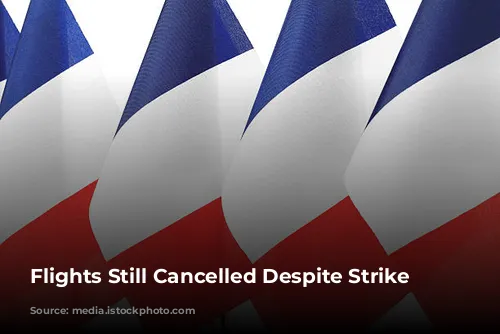
Workers Demand Better Pay and Working Conditions
The strike threat highlights the growing concerns about pay and working conditions in various sectors across France. The air traffic controllers’ union, SNCTA, had been seeking a 5.04 percent pay increase annually for the next three years, as well as a doubling of their “special qualification allowance”.
While the details of the agreement reached between the SNCTA and the government are still unclear, it’s evident that French workers are demanding better pay and working conditions, posing a challenge for the government as they navigate the upcoming Olympic Games.
